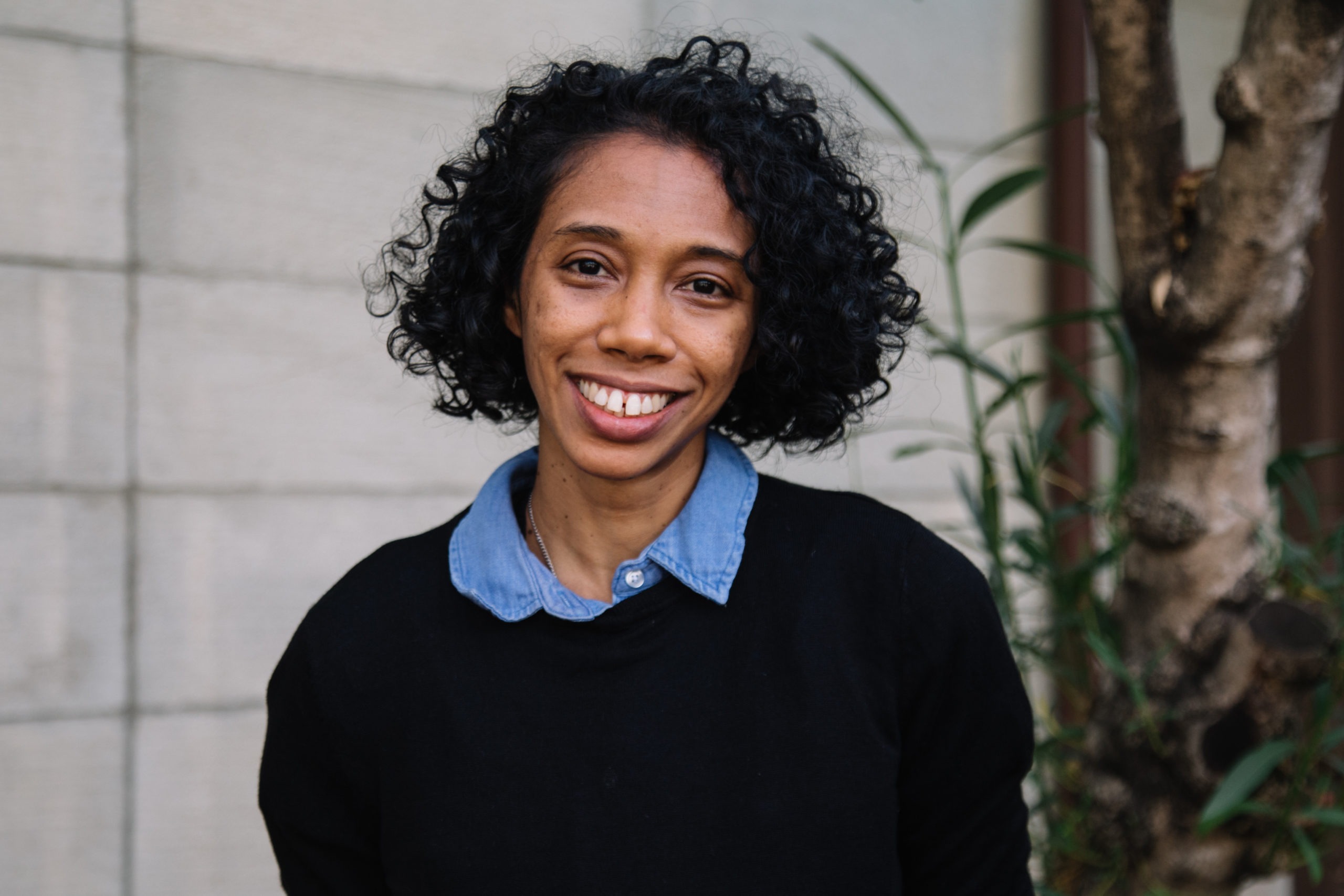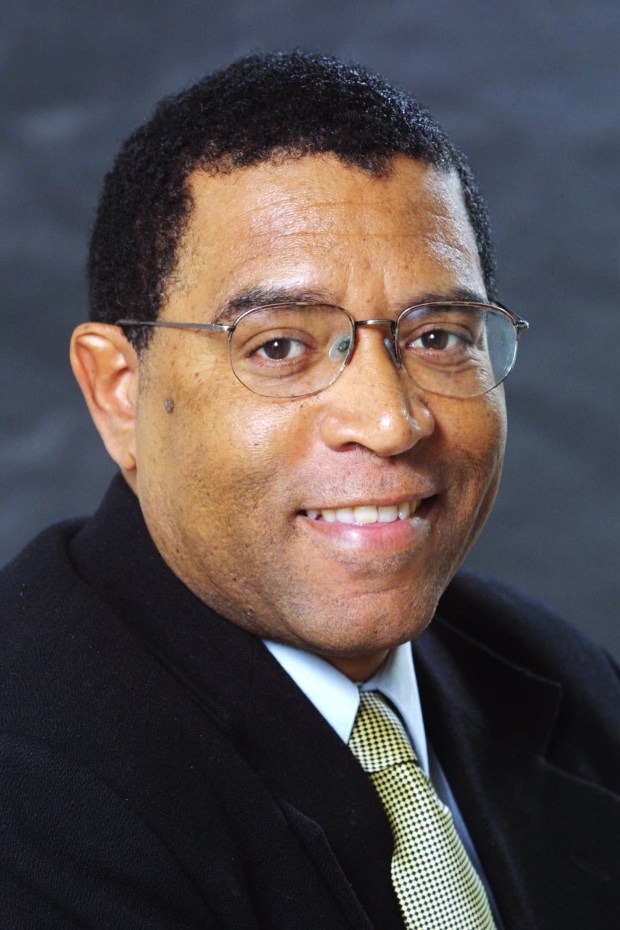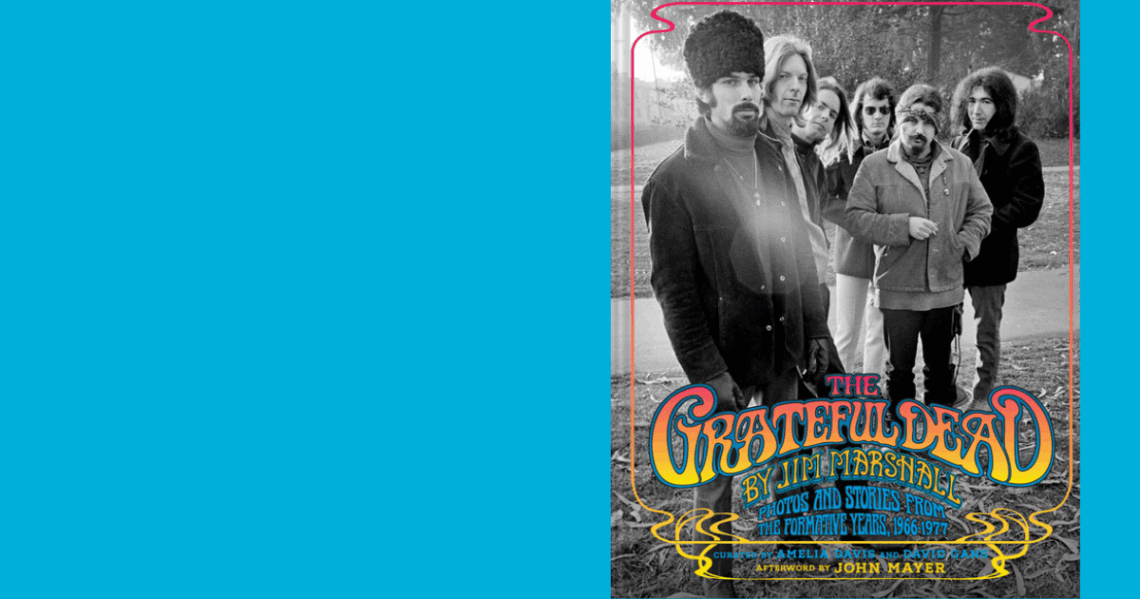
Photo by Clara Mokri (’21)
Audio, multimedia and investigative reporter Gracelynne West (‘22) has been named the 2021 Chauncey Bailey Fellow at Berkeley Journalism.
The fellowship, established in 2012 by then-lecturer Alan Mutter and his wife Lynn St. Albus, is named for Chauncey Wendell Bailey Jr., the editor of the weekly Oakland Post, who was murdered on Aug. 2, 2007, while reporting on a story in Oakland.

Chauncey Bailey (AP Photo/Oakland Tribune)
The fellowship is awarded to a student who demonstrates the potential for leadership in promoting cross-cultural understanding and seeks to use journalism to shed light on racial and ethnic injustice.
Prior to transitioning to journalism full-time, West served as a Special Education Technician serving youth with special needs throughout the San Diego Unified School District. She also worked in after-school programs, community organizing and civic engagement. West has an undergraduate degree in Ethnic Studies from UC San Diego, where she graduated with distinction, and was a 2020 Dow Jones News Fund Emerging Journalist conference recipient.
West is a member of the National Association of Black Journalists (NABJ), UC Berkeley Chapter, the Asian American Journalists Association’s San Francisco/Bay Area Chapter and Investigative Reporters and Editors (IRE).
We (email) interviewed Gracelynne about her path to the School:
Let’s start with your hometown.
I was born in Oakland, lived in Richmond but was primarily raised in San Diego, CA. My dad worked on the Oakland Naval Base but once it closed in ‘95, we moved to San Diego and that’s where I completed high school and college and now I’m back in the Bay so it’s as if I’ve come full circle.
You came to the School after getting your undergraduate degree in Ethnic Studies from UC San Diego, where you graduated with distinction. Walk us through your decision to go to grad school in journalism.
I graduated from undergrad in 2010, so it’s been almost a decade since I was a student. My dad passed away in my second year of college, so I had no choice but to work and support my mom and sister. Before transitioning into journalism, I’ve worked in various jobs in education, serving students with special needs. I loved doing this work because I could truly identify with my students because I struggled in school as well. Journalism became a passion of mine through my non-profit work. I volunteered to support the Little Saigon Foundation by writing articles for their newsletter. I never had training or experience but the chance to learn and write about someone else’s story was always exciting to me. Others may not know this but I was unhoused when I applied to journalism school and it was a really difficult time for my family and I; but despite all the hardships, I really wanted to pursue my dream. My undergrad mentor once told me that “we need to be everywhere,” and that always stayed with me because oftentimes I did not know how I could impact change in the world, but it became clearer to me that my writing could be a way to amplify more underrepresented voices and that’s why I’m here today.
What informs your work’s focus on education, racial justice, women’s rights, labor, mental health, race and gender? I’ve read, for example, about your broad community-based experiences prior to journalism.
Community organizing is also a form of storytelling and relationship-building. I had to find my own personal connection to the work so that I could inspire others to share their own stories. Despite my lack of journalism experience, I’m really grateful for all of the community work I have done because it has helped me be more in tune to the voices and experiences of those commonly underrepresented in media, much like my own.
I found a piece online about your fasting for immigration reform while in college, following trauma your family experienced over decades. If you’re comfortable to, tell us about it. Does it impact the way you might approach/produce a story? How?
As a recent college graduate, I was really involved in the National Asian Pacific American Women’s Forum, an Asian American Pacific Islander feminist organization that focuses on reproductive justice, economic justice and immigrant rights. There was an opportunity to join hundreds of womxn on the Capitol Mall for a 48 hour fast for immigration reform and I decided to participate. This was the first time I have ever fasted so it was important for me and others to understand why we were there and if we felt comfortable sharing our stories with media outlets. I remember passing out at the start of the second day but seeing the strength and perseverance of the other womxn fasters inspired me to keep going. Immigration is an issue that impacts my family personally because my mom was the first of her siblings to arrive in the U.S. and from what she told me, I know it was an especially difficult time for her. She had to wait more than 30 years to be reunited with her siblings and it’s stories like these where legislation doesn’t leave room for the human and emotional impact of those who are impacted. I don’t want to be a journalist that just writes about the legal implications of legislation but really gives voice to those who are personally affected by these issues, but I won’t stop there, I believe that they should be active participants in these stories as well.
Who are your mentors at the School and why?
I have really appreciated the “Life as a BIPOC journalist” breakout sessions each month. Both Abené Clayton (’19) and Bo Kovitz (’19) have been extremely supportive and receptive to the issues I have struggled with as a school student here. As a first-generation student, Black and Filipinx student, low-income student, womxn of color, I don’t have many people in my life that I can reach out to who have navigated journalism school and they have consistently shown up for me and many other BIPOC students in that space and I’m grateful for that.
What does this Fellowship mean to you?
Chauncey Bailey was truly a journalistic giant, in reading his brief biography, he was truly committed to uplifting stories of the Black Bay Area in his work. As a journalist, he did not just gather sources but truly knew the entirety of the community and built sustaining relationships with Black community members he regularly crossed paths with in his reporting. He also created a pipeline for young journalists to find a career in journalism. His passion and unwavering commitment to telling the stories of his community is something that I hope to find in myself. One of the reasons I decided to become a journalist was because I come from communities where we have to create our own media because there is so much distrust in media telling our own stories. Relationship-building is not happening, and that’s what I hope to change, we can’t continue this legacy of extractive journalism, we have to meet communities where they are at and allow them to tell their own stories. This fellowship is meaningful to me because Bailey’s legacy reminds me that I have to continue to ground myself in the community and always honor the elders that have come before me and inspire those who will come after me.
What kind of friendships have you formed at the School?
Despite entering journalism school in the midst of a pandemic, I am so grateful that I am in Berkeley because I have been able to build such meaningful relationships with my cohort-mates. The “Life as a BIPOC journalist” space has really transformed into a social network, where many of us, first-year BIPOC students, are supporting each other and showing up for one another. I hope that the school facilitates more informal social events because it can get really isolating sitting across a computer screen all day, with little human interaction outside of Zoom. We deserve it. Mental health resources should be a top priority not only when we have a wellness month planned or when someone is in crisis. Those coping mechanisms should already be put into place.
You served as a member of the advisory committee to search for a new lecturer to come teach a Race and Journalism class this spring, the first of its kind at the School. What was your experience like on the committee?
I was honored to be part of the Race and Journalism lecturer committee. As a student representative, I really wanted to support a candidate who could tackle issues head on and make students delve deeper into existent structural racism, confront white fragility and the ways in which we are complicit in a structure that was founded without marginalized communities in mind.
At the time, my feelings around race and journalism were really raw because I felt that discussions around racism and white supremacy were not being addressed in the classroom, or if they were, they were being led by students. I decided to share the bios of the candidates in the student Slack channel and other students would help decide who they would most want to teach the class. Students really yearned for an instructor who had a proven track record in addressing racism in newsrooms and was dedicated to building the pipeline for young journalists of color to feel supported in entering the industry.
In the end, I hope that the school makes it a required course for all students.
//
For more information, see the award-winning documentary “A Late Day in Oakland,” directed by Berkeley Journalism alum and former lecturer Zachary Stauffer (‘08); read Killing the Messenger, by lecturer Thomas Peele, who called Bailey’s murder “one of the most blatant attacks on the First Amendment and free speech in American history,” and check out The Chauncey Bailey Project, an award-winning investigative project by reporters and editors from across the Bay Area who knew him. The project proved their motto “You can’t kill a story by killing a journalist.”

